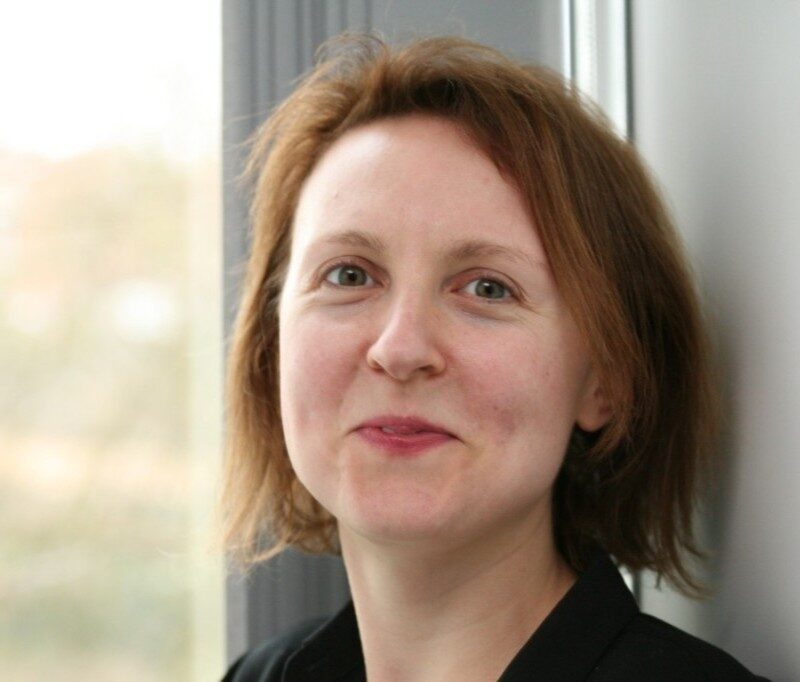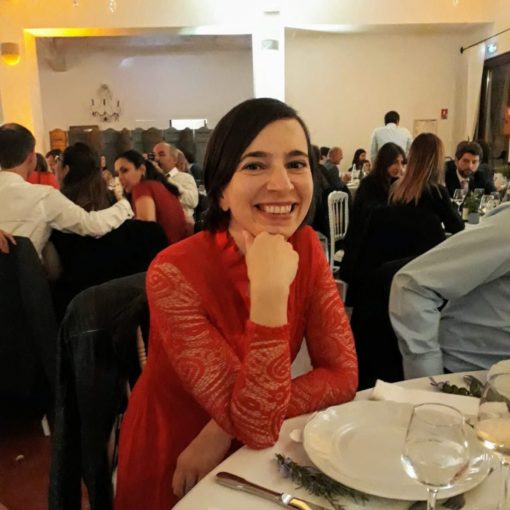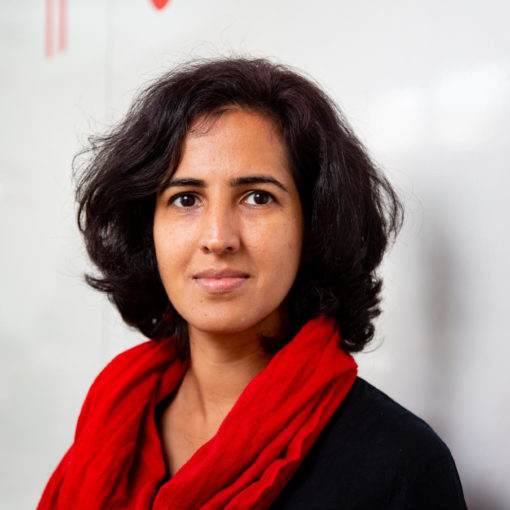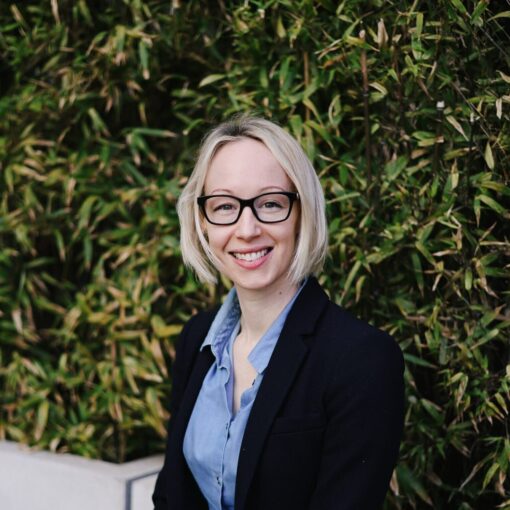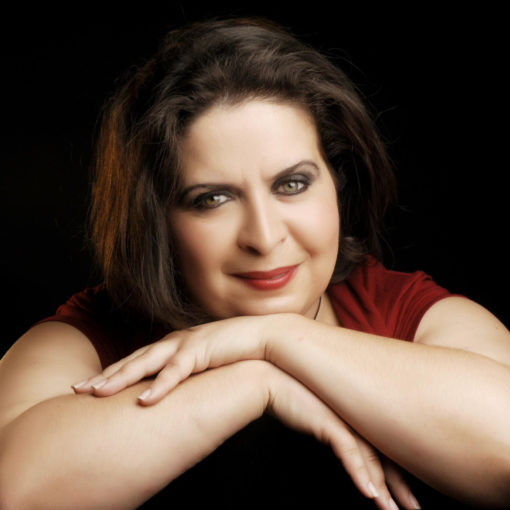DPhil in Classics, University of Oxford (2013)
| Policy Officer | |
|---|---|
| European Commission | |
Year entered into a non-academic position: 2015
Job highlight: working every day with bright people from many different countries.
My research training set me up to…: write clear and persuasive texts, analyse large amounts of information quickly, and on occasion be alert to the difference between rhetoric and reality.
Left academia after: 1 year 6 months of postdoctoral work.
What’s your background?
From a young age I was fascinated by the ancient world, and studying Classics (Latin and Greek languages and literature, and ancient history) at the University of Oxford was a dream come true for me. I had always planned to spend my life studying and teaching, and so I embarked on a Master’s and then a doctorate. However, while I was still very interested in my field of research, I started to wonder if I should have looked harder at other career options, even though nothing particularly appealed to me. At this point, I was lucky enough to be able to go to Paris for a year as a visiting student. While I spent the bulk of my time working on my thesis, I was also able to speak French, travel, and meet people whose life experiences had been very different from my own.
Why did you move away from academia?
After my year in France I came back to Oxford, became a part-time lecturer and director of studies, and completed my doctorate. I enjoyed the responsibility of teaching classes and advising students and decided that I did want an academic career, so I started to apply for teaching and research posts.
But gradually I realised that I did not feel excited about the future that seemed to lie ahead of me, and not only because the academic job market was so demanding. I also found I was constantly searching for reasons (e.g. conferences) to spend time in continental Europe.
I therefore began to look for jobs outside academia that would allow me to use my written communication skills, which I knew were one of my key strengths: my thesis had been praised for its clarity of expression and, on a completely different note, I had also created a local restaurant review blog that became unexpectedly popular! However, what I really wanted to do was go abroad. The offer of an internship (‘traineeship’) at one of the EU’s institutions in Brussels was what made this happen.
Is there anything you miss about academia?
Occasionally I miss the flexibility of not having to work standard ‘office hours’, but instead I have (mostly!) a much clearer divide between work and free time. More broadly, I sometimes regret not following new publications and developments in my field more closely. However, while I have been involved in a few small Classics projects since my career change, I am now happy to have the freedom to pursue new intellectual interests.
How did you get this job? Did you face any challenges when considering a move away from academia or applying for the role?
In the ‘Eurobubble’ – the world of the European institutions in Brussels, along with the lobbying firms, NGOs, think-tanks, national and regional representations and other companies that collaborate with them – an EU traineeship is merely the first step, with numerous ex-trainees competing for a limited number of positions. After my traineeship, I worked in communications in the private sector for a short time, before finding a role as a web editor at the European Commission.
This was the ‘foot in the door’ that helped me reach where I am now: the Commission’s department for digital policy (formally, the Directorate‑General for Communications Networks, Content and Technology), initially as a press officer. However, while I still very much enjoy using my writing skills, I always hoped to move from communicating about the Commission’s activities to shaping its policies. I was delighted to be offered my current role as a policy officer, working on the EU’s strategy in emerging technologies, especially quantum.
It is important to stress that I would not have got this job when I arrived in Brussels – it took five years of acquiring experience and several different contracts (and, like many Commission staff, I don’t have a permanent contract now, so it is very likely that I will move again at some point in the future).
What motivated you to/why did you choose the sector you transitioned into?
After spending most of the first decade of my adult life in the same place, my main motivation was to move to a different European country and broaden my professional and personal horizons. Brussels seemed a promising choice, especially for someone from the UK interested in working in communications. Being an English native speaker doesn’t guarantee instant success but, as English is the most common working language here, it is helpful.
In the longer term I hoped that a communications role would help me gain experience in a specific domain and open up further opportunities, which has indeed happened.
Did you think you had the skills required for your current position before you started? Were you right?
My current position builds on several years of cumulative experience, inside and outside the European Commission: I find myself using both the skills I developed in academia and the knowledge I have acquired in Brussels. However, I should also point out that, as I work on science and technology policy, a number of my colleagues came to the Commission after doctoral or postdoctoral studies in relevant scientific fields. In their case, the link between their academic careers and current jobs is much more direct, and they handle the technical side of what we do: for example, overseeing EU-funded projects, and setting targets for the EU’s strategy for quantum technologies.
How did your PhD prepare you for your current job? For example, what were the transferable skills that you developed during your PhD that are most relevant to your current job?
When writing my thesis, I spent a lot of time reading and synthesising information from different sources, and learning to present my views clearly and succinctly: these are extremely important transferable skills.
Teaching and attending seminars also helped to hone my ability to react to arguments presented orally. More generally, as a director of studies I had a lot of administrative responsibilities (e.g. tracking progress, arranging exams, and interviewing prospective students). This experience of multi-tasking and decision-making turned out to be good preparation for the world of work outside academia.
Did you have any preconceptions about your sector that proved to be wrong?
Until the year before I moved to Brussels, I had not thought much about working for the EU, but I assumed that you needed a degree in European affairs, law or international relations (or perhaps modern languages). However, while many people in the Eurobubble have at least a Master’s in one of these fields, and this can be advantageous, especially at entry level, the experience of my colleagues and myself shows that it is by no means essential.
Can you describe a typical week in your job?
Generally, my time is divided between working on ongoing tasks and dealing with more ad hoc requests. Ongoing tasks include drafting documents that explain the EU’s plans for major initiatives in quantum technologies, while taking into account the views of technical specialists, management, and national governments, and helping to prepare work programmes (which explain what the Commission wants to achieve by funding research and other activities, and what kind of projects it plans to support).
Ad hoc requests can be preparing briefings for senior staff due to attend a high-level meeting or give a speech, representing my team at meetings, or writing press releases and answers to questions from journalists and members of the public.
Do people with a PhD frequently get hired in the company/sector?
Yes. It is more common for people to have specialised in a field related to EU policy-making, but there is certainly no disadvantage in having a doctorate of any kind.
What are your favourite parts of your job?
I really enjoy the intellectual challenge of working on complex political and scientific topics, while learning about the culture, language, and views on life of my colleagues, who come from all over Europe: I would definitely miss this if I found myself in a less international environment. It is also exciting to be following developments in quantum technologies, a cutting-edge field that is likely to lead to transformative advances in medicine, cryptography, navigation and more in the next few years.
What are your reflections on your career path?
If someone had told me ten or fifteen years ago that I would now be living in Belgium and working at the European Commission, I would have been astounded: for a long time, it was very hard to imagine myself flourishing outside academia. Even when I arrived in Brussels, I would never have expected to be discussing quantum technologies every day. But as it turned out, my life path was not as fixed as I believed it was, and I feel very grateful for all the opportunities that enabled me to change course successfully.
Do you have any advice for current graduate students and postdocs considering a career outside of academia?
I would encourage people to think deeply about what they really want – if you truly wish to be an academic, that’s wonderful, but there is no shame in deciding on a different career, even if you have been successful in academia so far. Teaching and researching help to develop many skills that can be ‘repackaged’ for other fields. I would also recommend finding the time to pursue an outside interest during your studies, for relaxation, but maybe also with a view to the future. I kept my restaurant blog on my CV for several years and interviewers always asked me about it!
What do you know now that you wish you’d known when exploring a transition?
When I came to Brussels, I didn’t expect to walk immediately into the perfect job (if such a thing exists), but at times I could have reminded myself more that a major career change takes time, and every professional experience is a chance to learn.
Can you recommend any relevant resources, organisations or events that might help somebody new to the sector find out more about it?
This page includes links to information about all the European institutions that offer traineeship schemes, in Brussels and other locations. Elsewhere on the same website you can find out about longer-term job opportunities in the institutions, and here is a useful article about the different types of temporary contract available. If you have specific questions, please feel free to contact me via LinkedIn.
Finally, I am all too aware that, as a result of Brexit, it would now be difficult to follow the route I took without an EU passport. However, the EU institutions do offer a small number of traineeships to non-EU citizens, and I would also suggest looking at other international organisations, several of which have a presence in Brussels.

